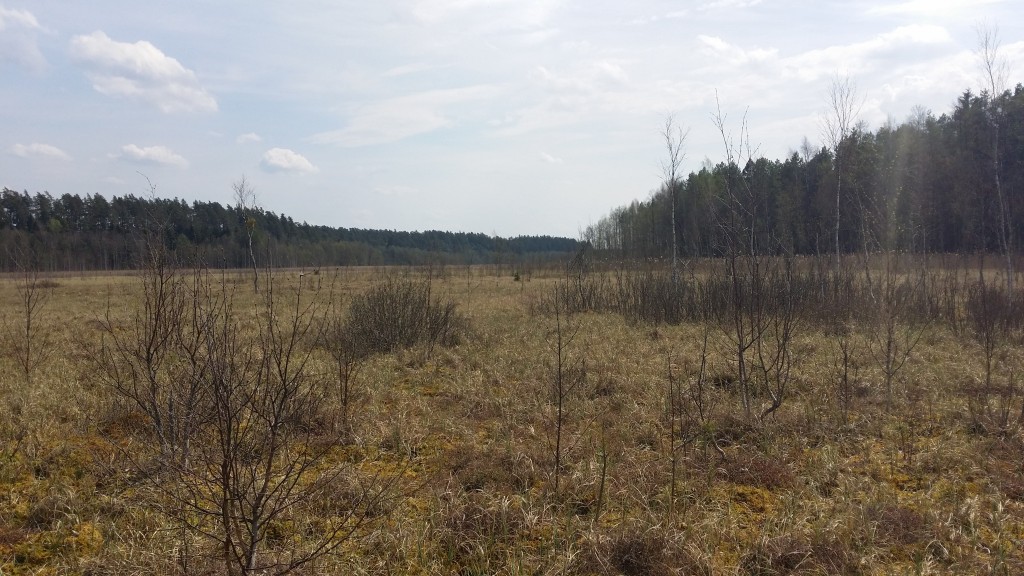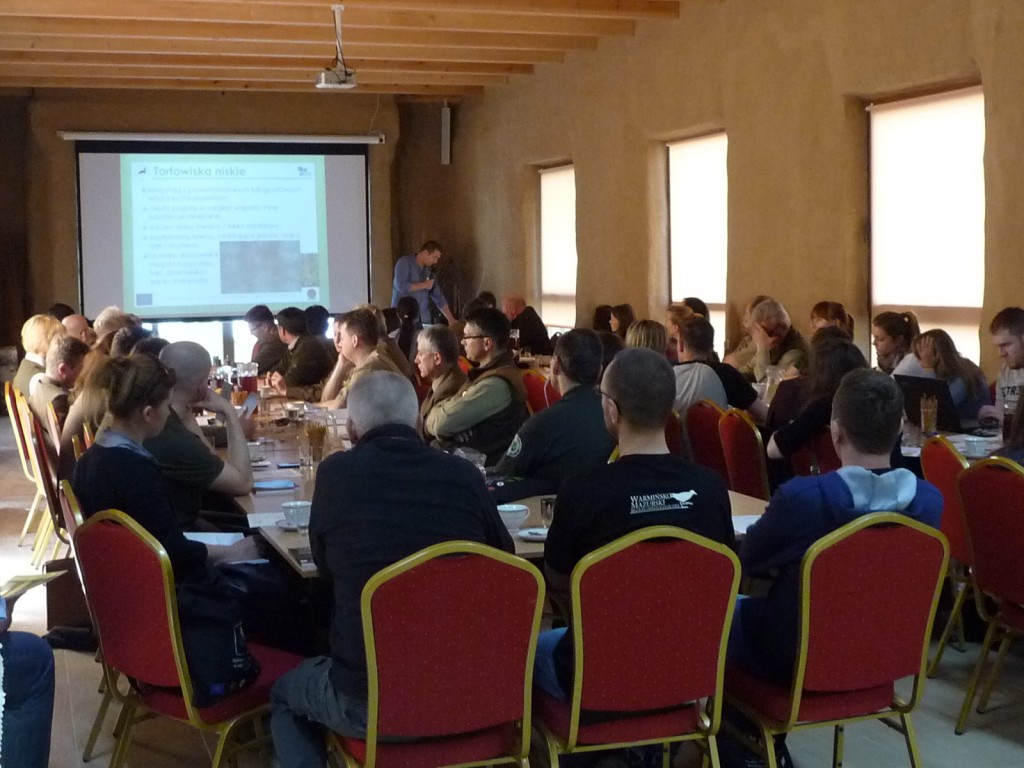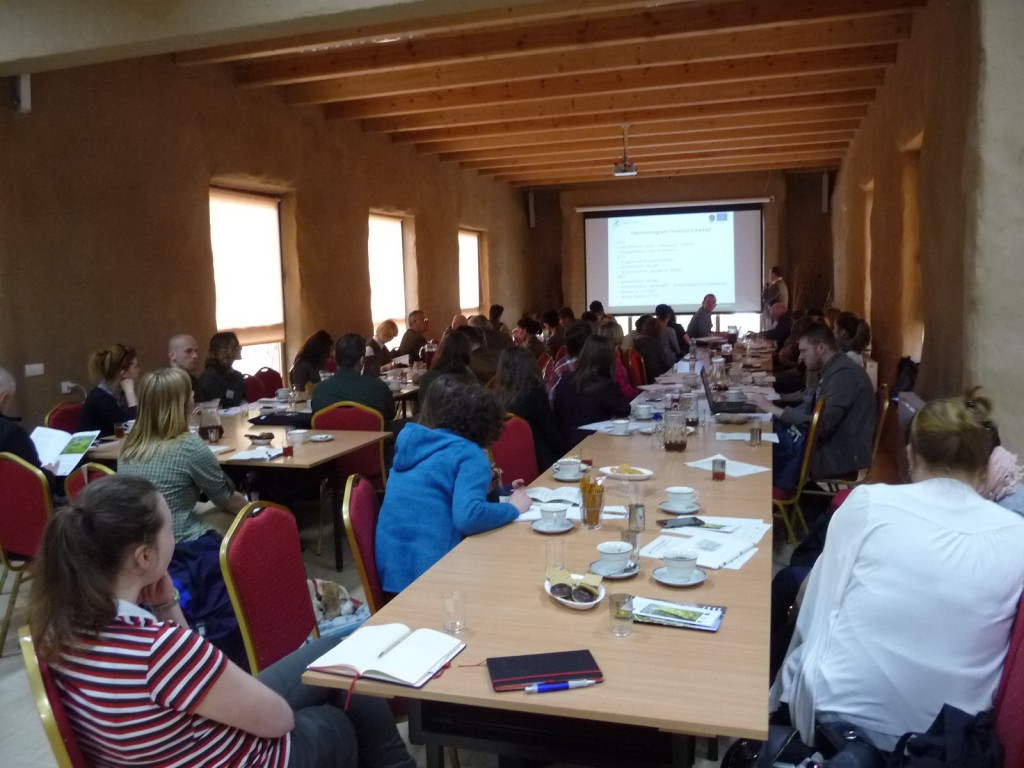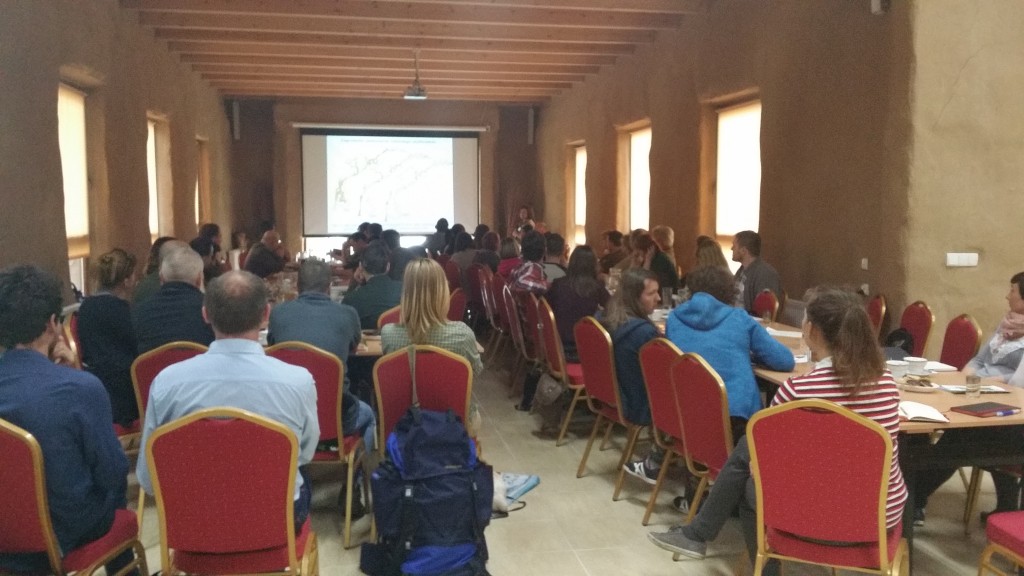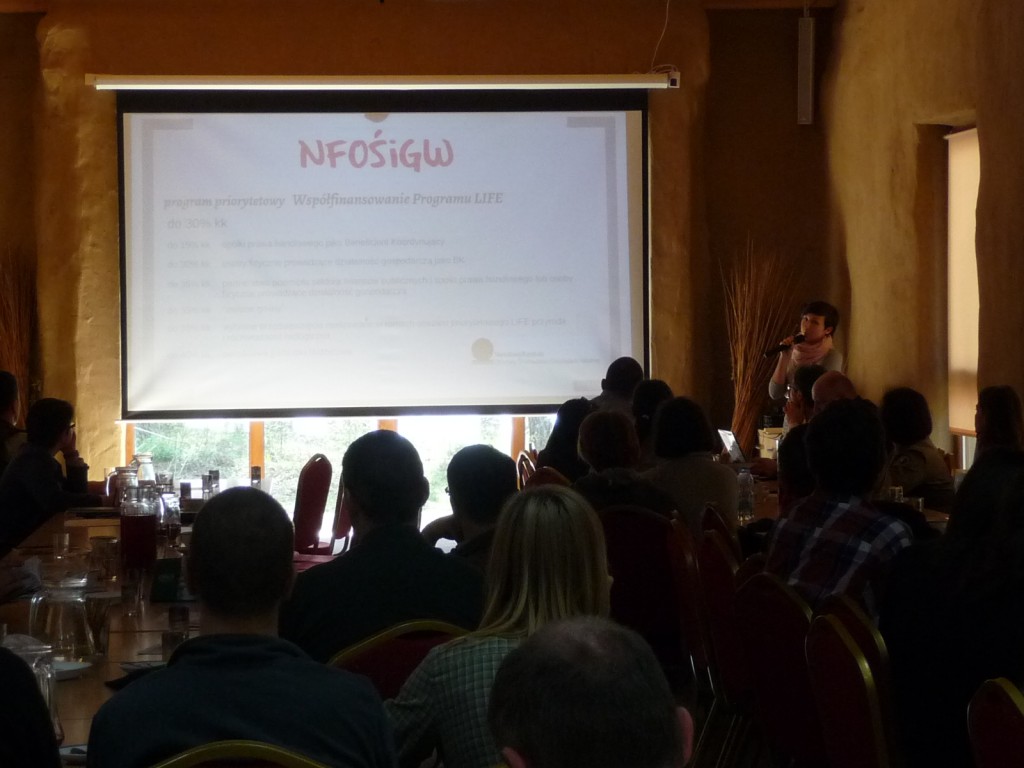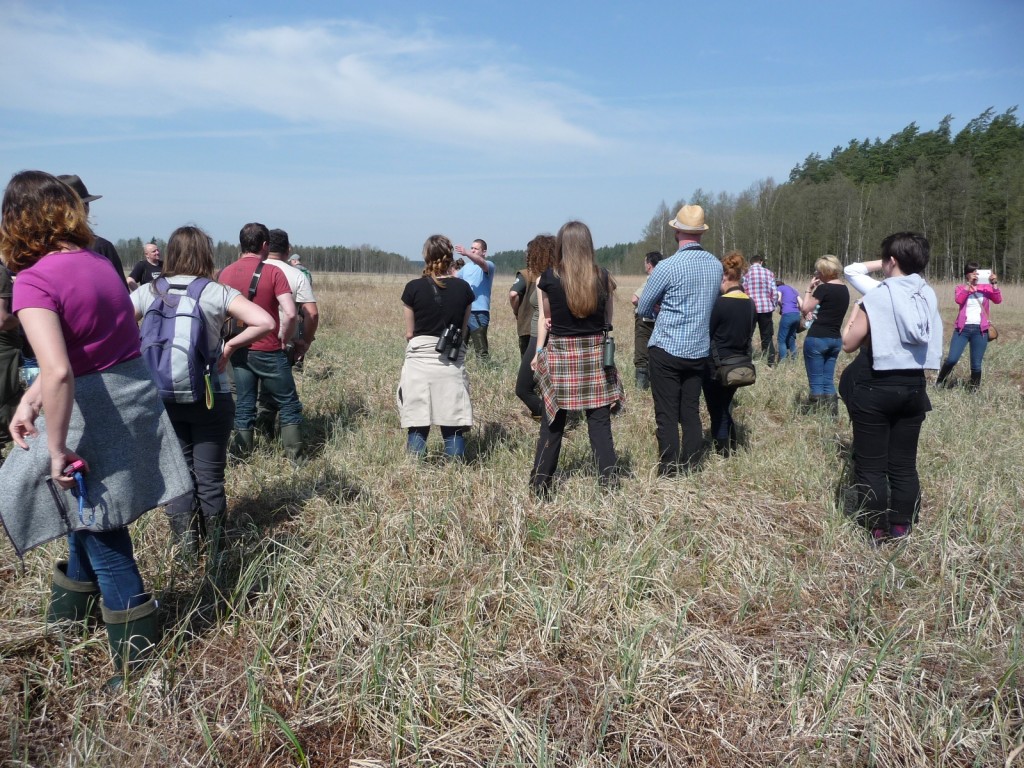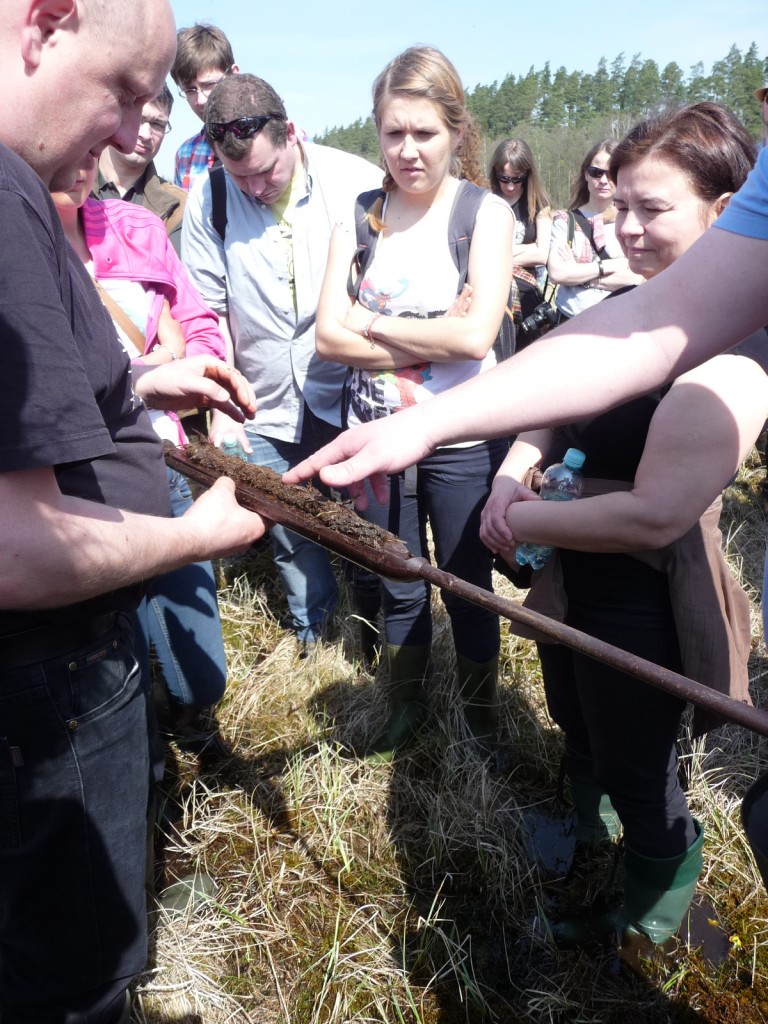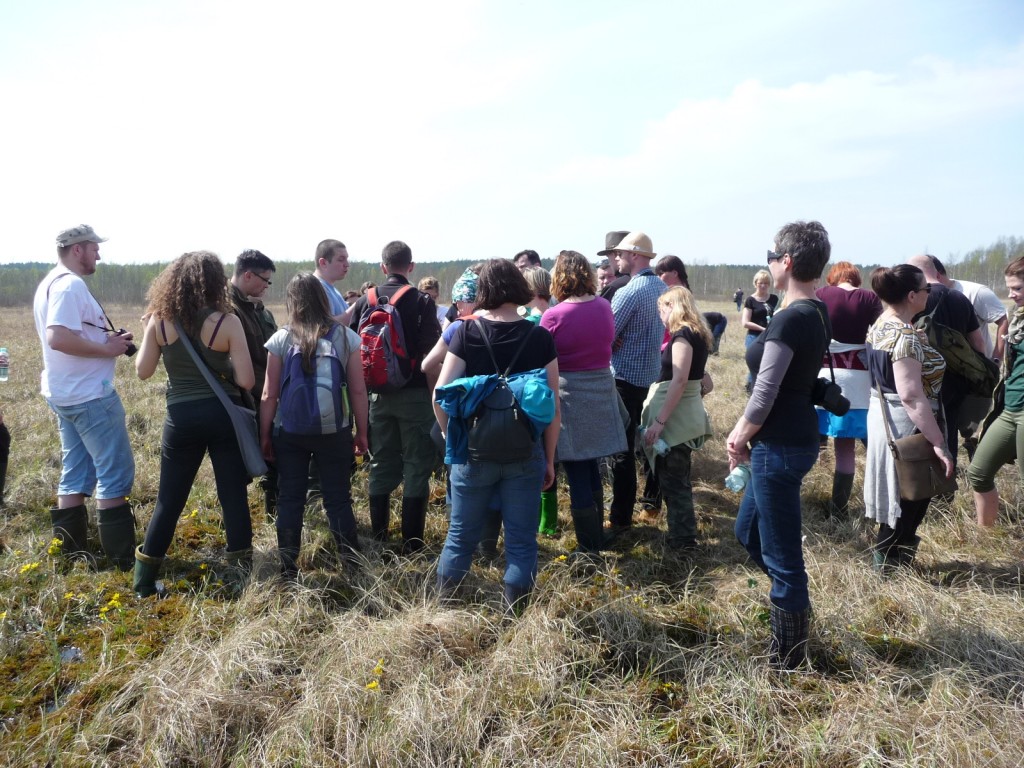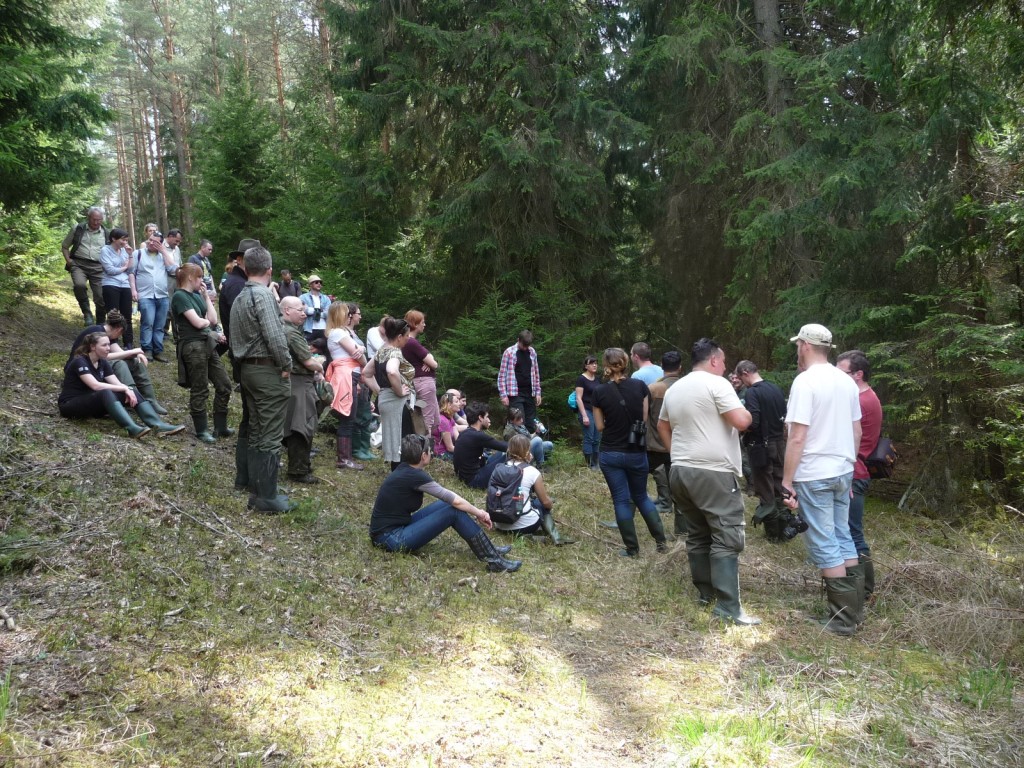Workshop on Rospuda already behind us
On 27-28 April 2015 in KUKLE Resort Centre in Kukle near Giby we held a workshop on the protection of alkaline fens combined with a trip on a Rospuda fen.
The workshop aimed to summarize the halfway point of the project, to bring results and lessons learned of other LIFE + projects (including the Biebrza National Park in protecting the Biebrza marshes ) but mainly to let participants know the specifics of alkaline fens and the difficulties in their protection. And so the workshops opened extensive presentation of Mr. Filip Jarzombkowski – Naturalists’ Club employee and at the same time the local expert in Club’s LIFE + projects . The presentation allowed participants to familiarize themselves with the characteristics of different types of marches and resulting from this characterization, undertaken various conservation measures. The next two presentations related to the recently completed LIFE + projects – Coordination Centre for Environmental Projects (http://www.bestpractice-life.pl/) and the Biebrza National Park (http://www.biebrza.org.pl/375,life.html). Especially presentation on the effects of the Park and the lessons learned for future applications in the protection of wetland ecosystems, showed the complexity of the issue of protection of peatlands on a large scale. More about the project on the Park’s website.
These three presentations closed the first block of training. The next was part devoted slightly more mundane aspects of the projects. A representative of the National Fund for Environmental Protection and Water Management – Ms Marta Wronka presented the process of evaluating the LIFE + proposal – both the Commission and the National Fund. It probably allowed those who plan in 2015 to apply with LIFE+ project, to familiarize themselves with the evaluation criteria. Another presentation was the speech of the representative of the Club which, like the presentation of the National Fund, revealed “back stage scenes” of projects – but from the perspective of the beneficiary. The presentation was to show these aspects of the implementation of LIFE + projects that can not be found in the guidelines and are the result of practical experience in conducting 4 LIFE + projects already by the Club.
The last block of the presentations returned us to issues related with fens. President of the Club talked about the difficulties in precise planning of the environmental effects to be achieved and what from these difficulties arise. The last scheduled for a workshop presentation was devoted to the presentation of the Rospuda Valley’s fen – the aim of the trip on 28.04.2015. Mr Filip Jarzombkowski the Rospuda Valley has been studying for the past almost 10 years. He described in detail the phytosociological, geomorphological, hydrological, hydrogeoraphical characteristics of Rospuda Valley. All so that participants have the opportunity to explore deeper the mysteries which had to discover the next day.
The unnplanned closing of the whole workshop were presentation of the Association: Stowarzyszenie Naturalnego Rozlewiska i Jeziora w Szczerbięcinie “Wieś Nad Rozlewiskiem” in the person of Mrs. President and co-worker, who described the environmental problem with which the Association recently struggles .
After an that part of the workshop there was time to integration meeting by the fire, sausages and potatoes from the pot. A clear evening tuned to the long night conversations about the problems of nature conservation in Poland ;).
On the second day there was a field trip aimed at a living example to show the specificity of alkaline fens and their hydrological and phytosociological characteristics. Another point of the trip was the area of “forest form of alkaline fen” with characteristic for this form of dwarfish pines. Trip took place by kind permission of and in cooperation with Forestry Commission Szczebra – for which we thank.
The workshop attracted a lot of interest – bigger than we thought. There were much more participants than invitations sent – what makes us extremely happy. After the workshops, we heard many warm words about the workshop which suggests that it actually responsed to the existing demand of entities cooperating with the Club in peatlands protection.
Thank you all for coming, active participation and words of appreciation!
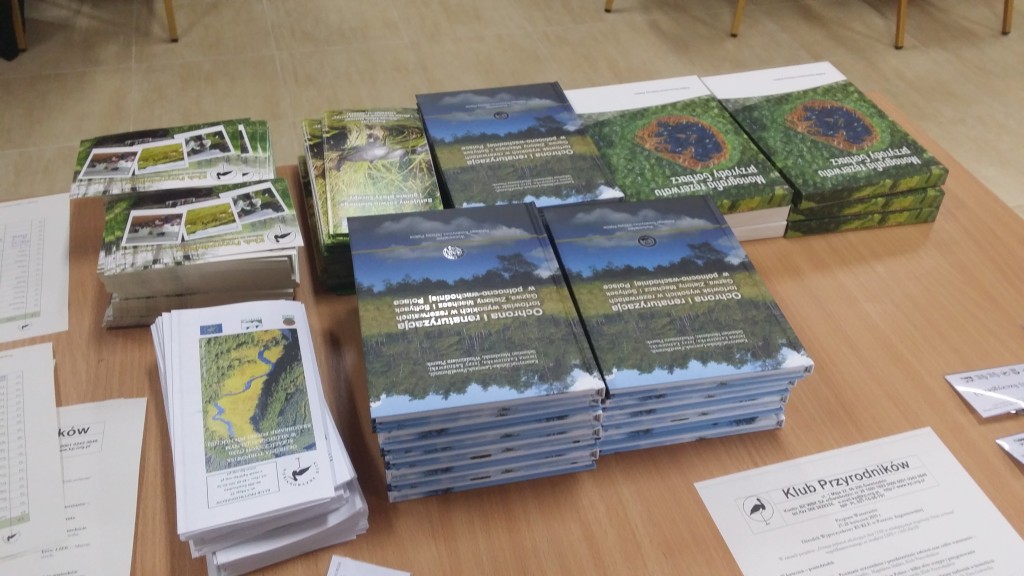
The materials to which participants had access during the workshop (except for the welcome package).
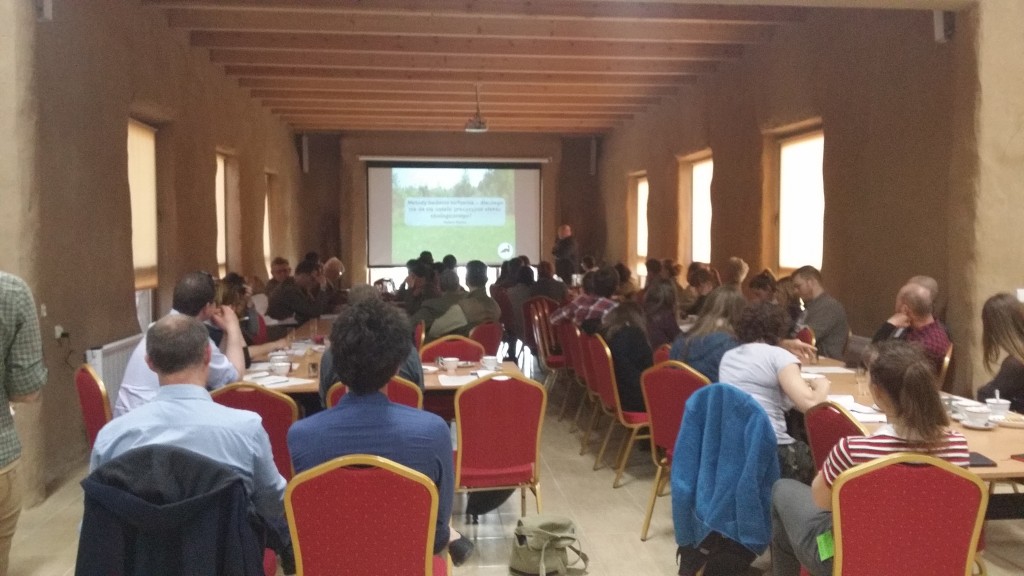
Presentation Naturalists’ Club President Robert Stanko on the methods of testing the environmental effect
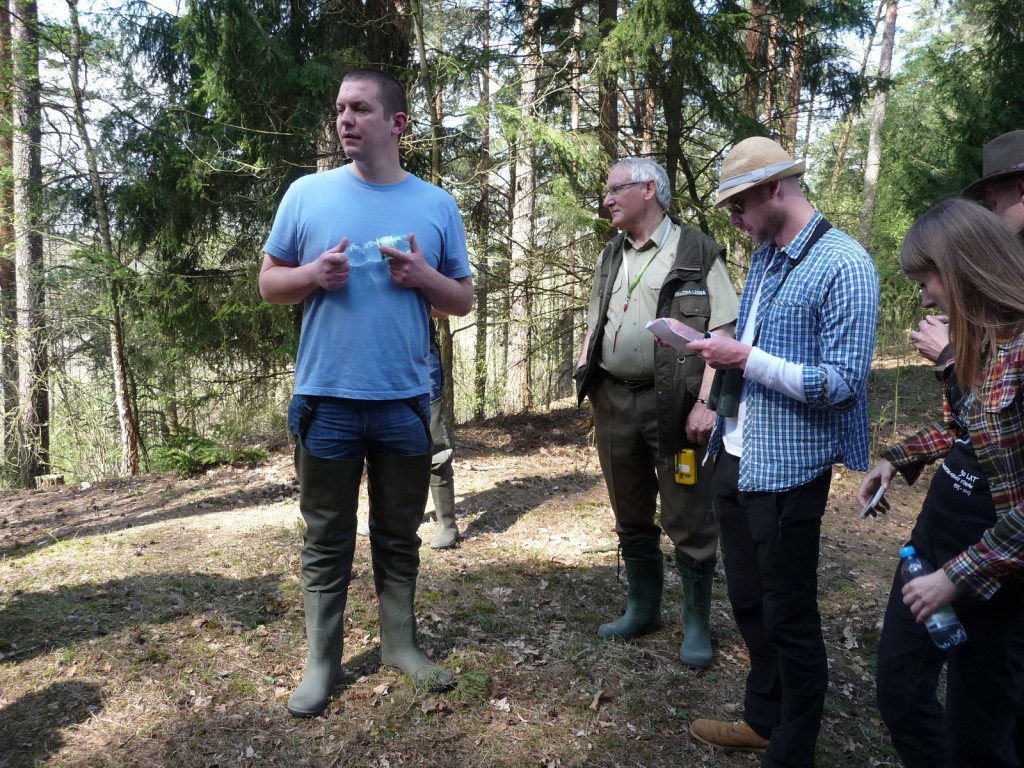
Field trip. Mr Filip Jarzombkowski and Forestry Commission in Szczebra explain the specificity of the Rospuda Valley.
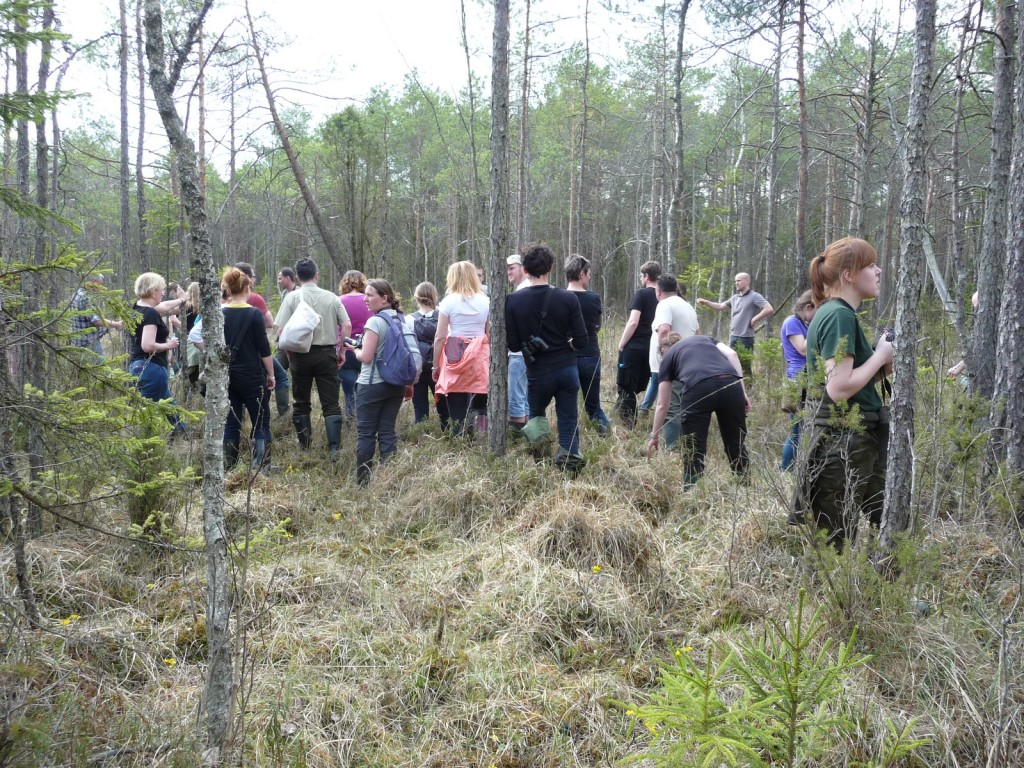
“Forest form of” fen with stunted pines. These visible among the participants have approx. 160 years.
This text is also available in: PL

